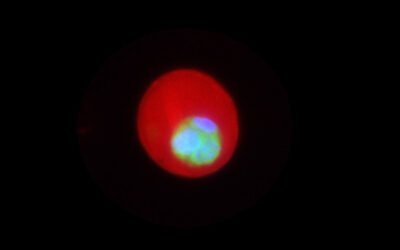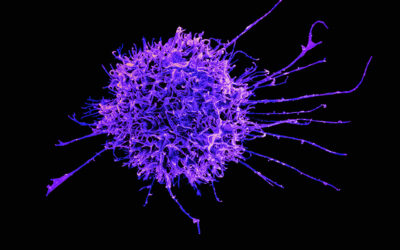Communication between cells is an indispensable feature for the survival and development of multicellular organisms. While we as humans communicate through means such as telephone and email, communication at the cellular level occurs via small packages known as extracellular vesicles, which are sub-micron vesicles produced by cells that carry “messages” across different cell types and organs, akin to materials shipped and carried by Fedex or Amazon around the globe.
The ability of extracellular vesicles to transport cellular biomolecules, such as proteins, different species of nucleic acids, and enzymes, and amend the physiology of recipient cells has placed them at the crux of normal cell function, as well as in the development of different diseases. This unique role has gained much attention and has subsequently led to their testing in the diagnosis and treatment of various human diseases, including cancer.
In a recent study published in WIREs Nanotechnology and Nanobiology, Drs. Akhil Srivastava and Rajagopal Ramesh of the University of Oklahoma Health Sciences Center explore advances in extracellular vesicles research made in the last ten-years and how its leading to better clinical applications.
In cancer, exosomes which belong to the extracellular vesicle are being studied for their putative role in the pathophysiology of the disease. For example, studies are being conducted to determine whether the exosomes produced by tumor cells reconfigure the biological environment in another organ that facilitates tumor cells to grow and spread. This phenomenon is similar to farmers preparing the soil prior to seeding for a plant to grow. Similarly, scientists are investigating the contribution of tumor-derived exosomes and how they modify tumor cell metabolism and the reprogramming of the immune system. In the area of cancer drug delivery, exosomes are also being tested as drug carriers due to their unique ability of carrying “cargo” biomolecules between cells. For this purpose, exosomes derived from normal cells, such as fibroblasts, immune cells, and stem cells, are currently being tested as carriers for anticancer drugs and tumor imaging agents.
“Studying extracellular vesicles is an exciting area of research that has seen exponential growth in the last decade,” said Srivastava, lead author of the study, assistant professor at the Department of Pathology, and member of Cancer Biology Program at the University of Oklahoma Health Sciences Center. “The excitement can be gauged not only by the surge in the number of publications, but by the fact that extracellular vesicles have a role in almost all diseases, as well as other aspects of life sciences, ranging from stem cells to regenerative medicine to experimental therapeutics and drug and gene delivery. This is indeed the most exciting era in extracellular vesicles science.”
“We are currently in an era where scientists and physicians are working together to seek answers for some profound biological questions. The presence of exosomes in bodily fluids, like saliva and urine, makes them a non-invasive diagnostic tool that can also be used to predict response to treatment,” explained Dr. Mohammad Razaq, co-author of the study and an oncologist at the Stephenson Cancer Center at the University of Oklahoma Health Sciences Center. Razq studies exosomes from lung cancer patients and uses them to predict treatment outcomes.
“While we have made significant progress in extracellular vesicle research, several challenges still exist that need to be overcome,” said Dr. Rajagopal Ramesh, one of the study’s lead authors and group leader of extracellular vesicles research at the NCI-Designated Stephenson Cancer Center at the University of Oklahoma Health Sciences Center. “Consensus among scientists for establishing standardized methods for exosome purification and characterization, as well as for large-scale production will aid in better understanding of the extracellular vesicles biology and their utility in clinical application.”
Written by: Rajagopal Ramesh and Akhil Srivastava
Reference: A. Srivastava, et al. ‘Progress in extracellular vesicle biology and their application in cancer medicine‘, WIREs Nanotechnology and Nanobiology (2020). DOI: 10.1002/wnan.1621

















